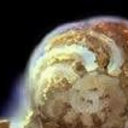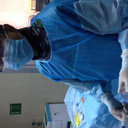Anti-apoptotic effect of heat shock protein 90 on hypoxia-mediated cardiomyocyte damage is mediated via the phosphatidylinositol 3-kinase/AKT pathway.
Nøgleord
Abstrakt
1. Hypoxia-induced cardiomyocyte apoptosis contributes significantly to cardiac dysfunction following trauma, shock and burn injury. There is evidence that heat shock protein (HSP) 90 is anti-apoptotic in cardiomyocytes subjected to a variety of apoptotic stimuli. Because HSP90 acts as an upstream regulator of the serine/threonine protein kinase Akt survival pathway during cellular stress, we hypothesized that HSP90 exerts a cardioprotective effect via the phosphatidylinositol 3-kinase (PI3-K)/Akt pathway. 2. Neonatal rat cardiomyocytes were subjected to normoxia or hypoxia in the absence or presence of the HSP90 inhibitor geldanamycin (1 μg/mL). Cardiomyocyte apoptosis was assessed by release of lactate dehydrogenase (LDH), terminal deoxyribonucleotidyl transferase-mediated dUTP-digoxigenin nick end-labelling (TUNEL) staining and caspase 3 activity. Expression of HSP90, Akt, Bad and cytochrome c release was determined by western blot analysis. 3. Following exposure of cells to hypoxia, HSP90 was markedly elevated in a time-dependent manner, reaching a peak at 6 h (eightfold increase). Geldanamycin significantly increased hypoxia-induced release of LDH by 114%, the percentage of apoptotic cardiomyocytes by 102% and caspase 3 activity by 78%. Pretreatment of cells with geldanamycin also suppressed phosphorylation of both Akt and its downstream target Bad, but promoted the mitochondrial release of cytochrome c. 4. In conclusion, HSP90 activity is enhanced in cardiomyocytes following hypoxic insult. The anti-apoptotic effect of HSP90 on cardiomyocytes subjected to hypoxia is mediated, at least in part, by the PI3-K/Akt pathway. Key words: apoptosis, cardiomyocyte, heart failure, heat shock protein 90, hypoxia, phosphatidylinositol 3-kinase/Akt signalling pathway, serine/threonine protein kinase Akt.




